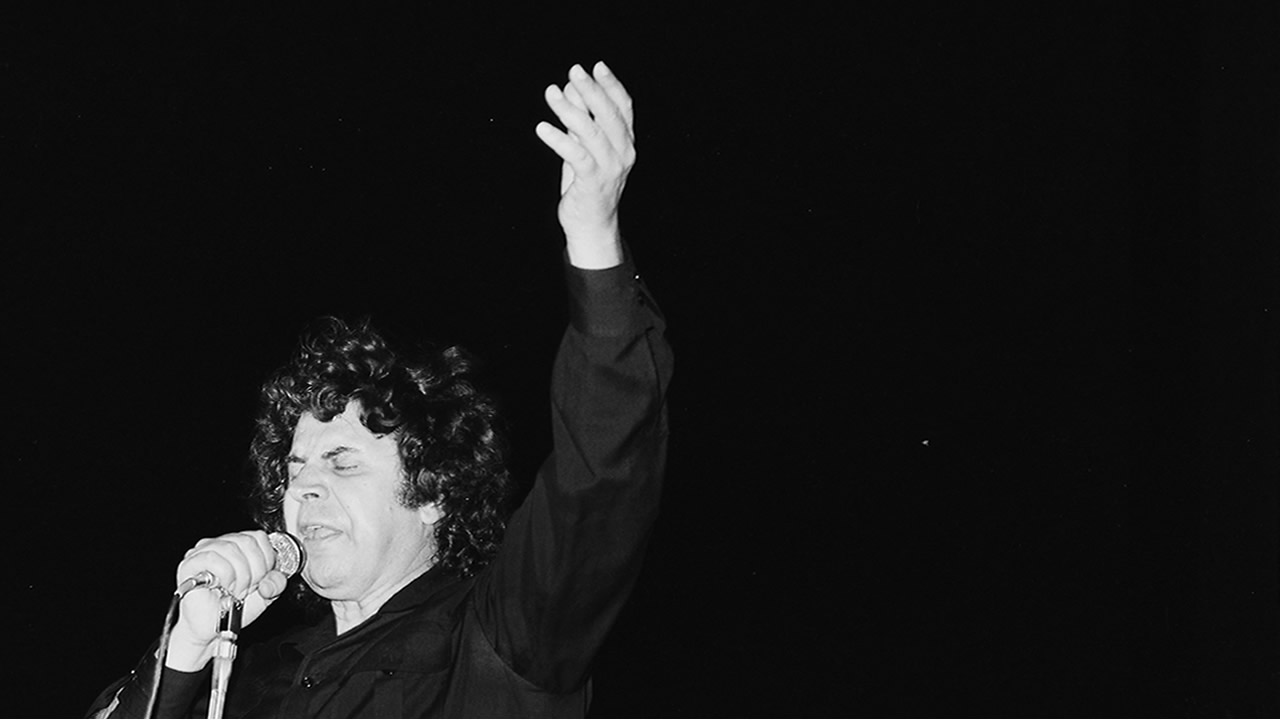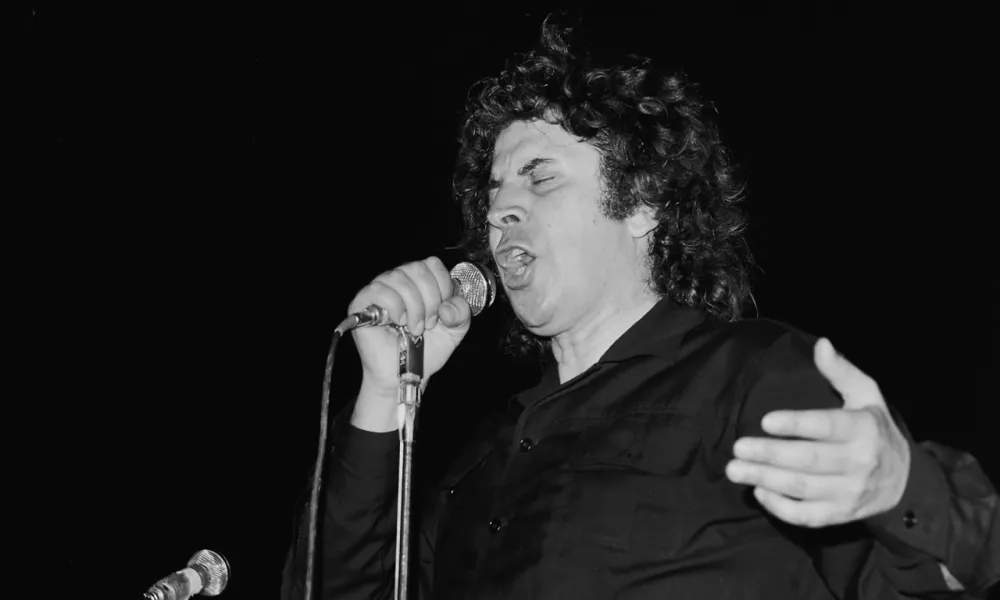In the pantheon of 20th-century cultural giants, Mikis Theodorakis stands shoulder to shoulder with the likes of Zorba and Serpico, figures who, through art and defiance, shaped the spirit of an era. Theodorakis was more than a composer, he was a symbol of resistance, a voice for the oppressed, and a beacon of hope. His international recognition soared with the unforgettable score of Zorba the Greek, which won three Oscars in 1965 and became synonymous with the soul of Greece. But for Cyprus his legacy stretches far beyond cinematic fame, it is etched deeply into the heart of the people, through his concern, his love, and his unwavering solidarity with the island.
On the fourth anniversary of his death, remembrance is shaped by his legacy, by his final concert at the Panathenaic Stadium in Athens, and in Cyprus by the unforgettable connection that ran through his life and work. We recently uncovered photographs from one of the most intense moments in modern Cypriot history: the October 1974 concert at the packed “G. Karaiskakis” stadium in Piraeus, staged just three months after the fall of the Greek junta and the Turkish invasion, and dedicated entirely to Cyprus.
The photographs from that night are not just archival material, they are living testimony of the unbreakable bond between Theodorakis and Cyprus. Thousands gathered, carrying the grief of the invasion and the hope of survival, singing his music as if it were the island’s own heartbeat. These images remind Cypriots that what ties him with the island is not only the enduring power of his melodies, but also his solidarity, his presence, and his unwavering identification with its struggle.

Theodorakis’ life was truly cinematic, he was a star, but also a survivor. His work must be understood within the broader political context of the 1960s and 1970s, a period when political art flourished across Europe and beyond, often in direct response to authoritarian regimes. In Greece, Spain, Portugal, and Latin America, artists were exiled, tortured, and silenced. In this charged atmosphere, Theodorakis stood at the forefront of a cultural resistance movement, proving that art could be both beautiful and dangerous, capable of inspiring hope and provoking fear in those who sought to suppress it.
Few artists have ever forged such a profound and enduring bond with Cyprus. In years of hardship and destruction, Mikis Theodorakis stood beside the Cypriot people, not only with his music, but with his presence, his convictions, and his unwavering belief in the justice of their struggle. “My ties with Cyprus are indestructible,” he once said.
In 1975, Theodorakis visited Cyprus and conducted a concert at the GSP stadium in Nicosia, in support of the island’s refugees. Archbishop Makarios III, first President of the Republic of Cyprus was also present. Theodorakis didn’t just perform, he gave courage and strength to a people in mourning. His music became a lifeline, a source of dignity and hope.
His connection to Cyprus began even earlier. In May 1964, during a period of intercommunal violence, he flew to the island to meet with Archbishop Makarios and express his concern. “I must tell you that in 1964, the air in Cyprus was filled with insecurity,” he later recalled:
“Makarios told me, ‘We are completely unarmed. We must hold on to something.’ There was great anxiety. And we all did whatever we could to strengthen the morale of the people. The only weapon I had was music.” That very day, he composed the Hymn of the National Guard and The Golden-Green Leaf, with lyrics by Leonidas Malenis. Written for the documentary Island of Aphrodite, the song became a symbol of Cypriot identity and resilience.
Through his spirit and dynamic presence, he gave courage and strength to the Cypriot people with his music and he was awarded by the island many times:
“I must confess that I’ve long felt myself to be a Greek Cypriot, or rather, simply Cypriot. So, I ask your permission to complete my biography, where I note Greek and Cretan, by adding: Greek, Cretan, and Cypriot.”
The composer stated this during the award ceremony held by then-President Tassos Papadopoulos. Mikis Theodorakis had also been honored by the Cypriot government during the presidency of Glafcos Clerides, who had presented him with the Medal of Exceptional Contribution of the Republic of Cyprus.

Musical Legacy
Mikis Theodorakis composed more than 1,000 works, spanning symphonies, operas, ballets, and songs. Internationally, he is best known for his unforgettable film scores, Zorba the Greek (1964), Z (1969), and Serpico (1973), which brought Greek music to global audiences. Yet some of his most profound contributions go beyond cinema. He created the haunting Mauthausen Trilogy, one of the most powerful musical works about the Holocaust, inspired by both his own experience of arrest and torture under Nazi occupation and his lifelong solidarity with the persecuted. Just as importantly, he set to music the poetry of Yiannis Ritsos, Odysseas Elytis, and Pablo Neruda, transforming verse into political and cultural anthems that still resonate today.
Political Activism
His activism was inseparable from his art. Arrested and tortured during the Nazi occupation of Greece, persecuted in the civil war that followed, exiled and imprisoned under the military junta of 1967–74, Theodorakis lived much of his life under repression. Yet he never ceased to speak out, against fascism, dictatorship, and injustice wherever he saw it. From Palestine to Chile, from South Africa to Cyprus, he aligned himself with peoples in struggle, using his music and his voice to amplify their cause.
He passed away on September 2, 2021, at the age of 96 and the world mourned not only a genius, but a conscience of his time.
His music is still played, his words still quoted, and his presence still felt. On the anniversary of his death, Cyprus remembers a soul who stood with her when it mattered most.
Eternal be his memory, in Cyprus too, where his music is part of the island’s soul.
